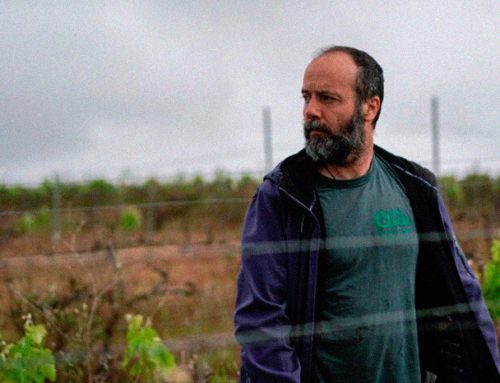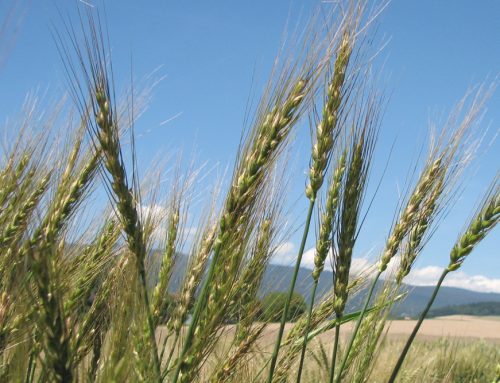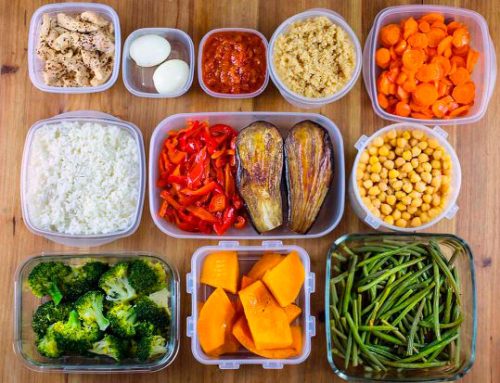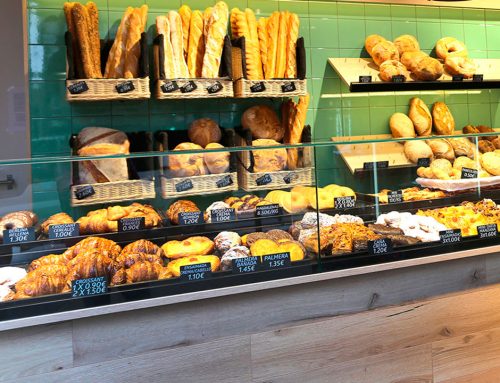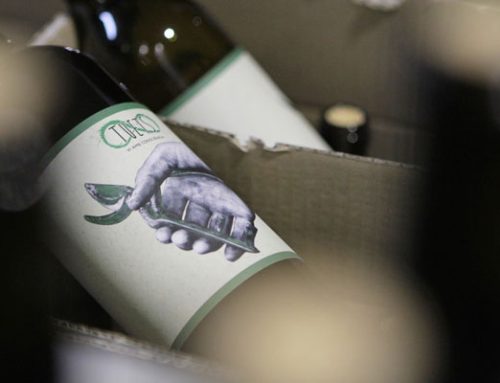She hands me a tiny blush-colored apricot. It’s firm, but one bite reveals a heavenly interplay between sweet and tart that hits the spot on this warm June day. Bàrbara Mesquida Mora leads me through her garden collecting tastes. Apricots, she tells me, are the other crop after grapes on this part of the island. She grows them between her vines, as part of her philosophy of a biologically diverse, integrated agriculture.
Mallorca is better known for its beaches than its wines, but Bàrbara makes wines worth getting to know. She seeks to capture a freshness she likens to a Mediterranean breeze in a bottle. A blend of native and international varieties, her wines express the impressive range Mallorca can produce. While she’s proud of the fact that her father’s winery was the first to introduce certain international varietals to the island, she’s also focused on a new future for her wines, slowly replacing dying vines with native grapes like Callet, Gorgollassa, Prensal and Giró Blanc. They may be rustic, she reflects, but there’s a beauty in their imperfections.
She looks pensively across the property through bright pink and purple glasses, munching on her apricot. Bàrbara’s approach to wine is an intellectual one. Educated in philology, she’s keenly aware of the connection between words and wine. “It’s all a process of creation,” she says. “To make a wine is an act of reflection, thought, of structuring. Philology is a process of the mind, while wine is one of nature. You play with nature, or rather, nature plays with you. In both you’re putting together pieces to create a harmonious relationship.”
This idea of harmony is part of what led her to biodynamic winemaking. Yet she looks beyond the moon’s movements, focusing more on the needs of the land itself. It all comes back to the land, the suelo, so vital that her wine, Trispol, is named after it. Having started her project in 2012, she is finally at a point where she can plan beyond the next vintage. In addition to renovating the vineyards, she’s recuperating the land around her bodega to recreate the farm it once was, under the direction of her grandfather, complete with horses, chickens, geese, and a small food garden. She sees her work, in both the gardens and the vineyards, as bringing the land full circle, “a return to roots,” she tells me with a smile. || mesquidamora.com
What to try: You would be remiss not to try the Sòtil 2013 (€20), made from 100% Callet, the grape for which D.O. Pla i Llevant is best known. As its name suggests, it’s a subtle, delicate, floral red filled with aromas of violets, hints of pink peppercorn, and red fruits. The grapes are from old vines, and the wine is aged 12 months in French oak. The Sincronia Blanc 2016 (€10) made from Prensal, Parellada and Chardonnay is a bright, un-aged white, great for drinking on hot summer days, with food or alone.
Where to find it: Vivinos (c/ dels Canvis Nous, 10) and El Petit Celler (c/ de Beethoven, 8).



